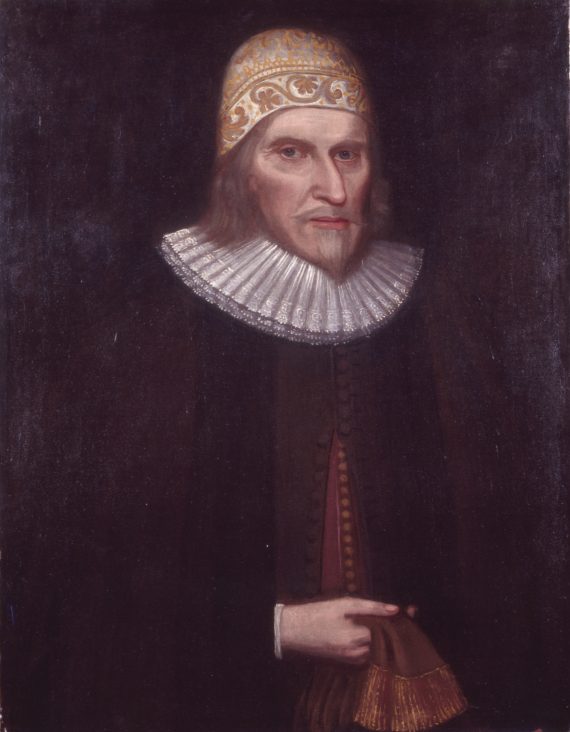- About
- Visiting
- What’s On
- Venue hire
- Catalogues
- Collections
- 101 Treasures of Chetham’s
- Digital Resources
- The Flowers of Histories
- A Book of Hours from France
- The Manchester Scrapbook
- Thomas Barritt of Manchester
- Art Treasures Examiner of 1857
- Manchester Association for Constitutional Order
- The North Western Museum of Science and Industry: Some Reminiscences by Richard Hills
- Criminal Manchester
- The Cup of Destiny
- Athenaeum Souvenir
- Middle English Manuscripts
- Manchester and Liverpool of Today
- Hollingworth’s Mancuniensis
- Memoir of Cecil Wray
- William Seward’s Diary
- The Anti-Monopolist
- Fishwick’s History of Rochdale
- Knyvett’s Defence of this Realm
- Tractatus de Nigromantia
- Axon Ballads
- Printed Books & Ephemera
- Archives & Manuscripts
- Prints and Photographs
- Blog
- Support us
Humphrey Chetham
Humphrey Chetham (1580–1653), the most successful gentleman merchant of seventeenth-century Lancashire, was born in Crumpsall Hall, near Manchester, and later lived at Clayton Hall near Droylsden. His fortune was made in the cloth trade, mainly in buying and selling fustian, a strong woven fabric made of linen and cotton. He was a shrewd and successful businessman, and in the 1620s began to purchase land and property in the Manchester area.

Portrait of Humphrey Chetham in 1653
Chetham’s wealth brought him into the public domain, although he was a reluctant official, and in 1631 he was fined for refusing a knighthood. In 1634 he was appointed High Sheriff of the County of Lancashire, but refused a second term on the grounds of infirmity and old age.
For many years before his death Chetham attempted to make provision for a large charitable scheme. Towards the end of his life he began to pay for the education and maintenance of twenty-two boys from the Manchester region. His concern was to overcome poverty by curing ignorance, and to provide the hope of a livelihood for underprivileged boys. The school he founded was known as Chetham’s Hospital because it was a place of shelter as well as instruction. Humphrey Chetham died unmarried on 20 September 1653 at the age of 72, and was buried amid much pomp and ceremony at the Collegiate Church of Manchester.
